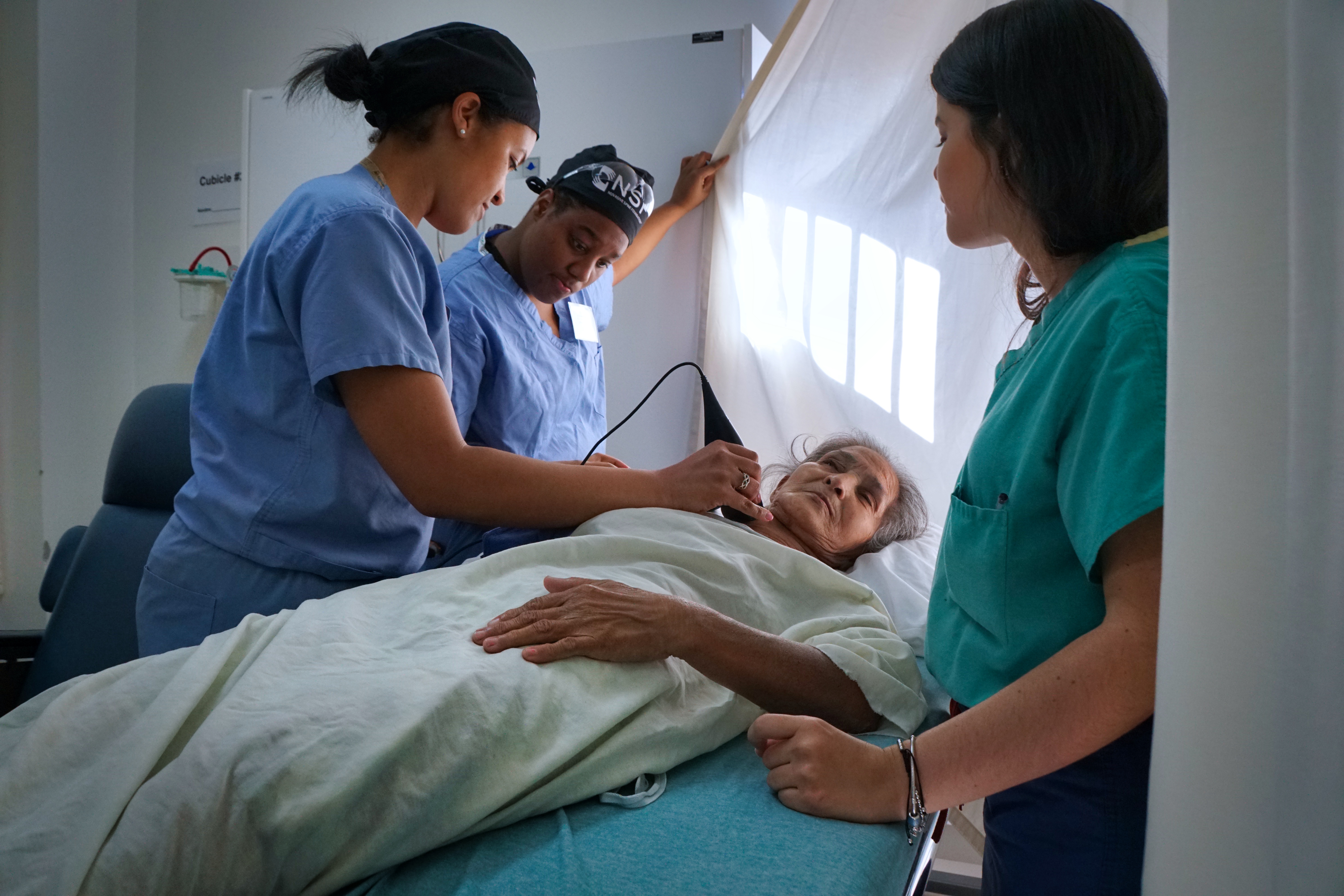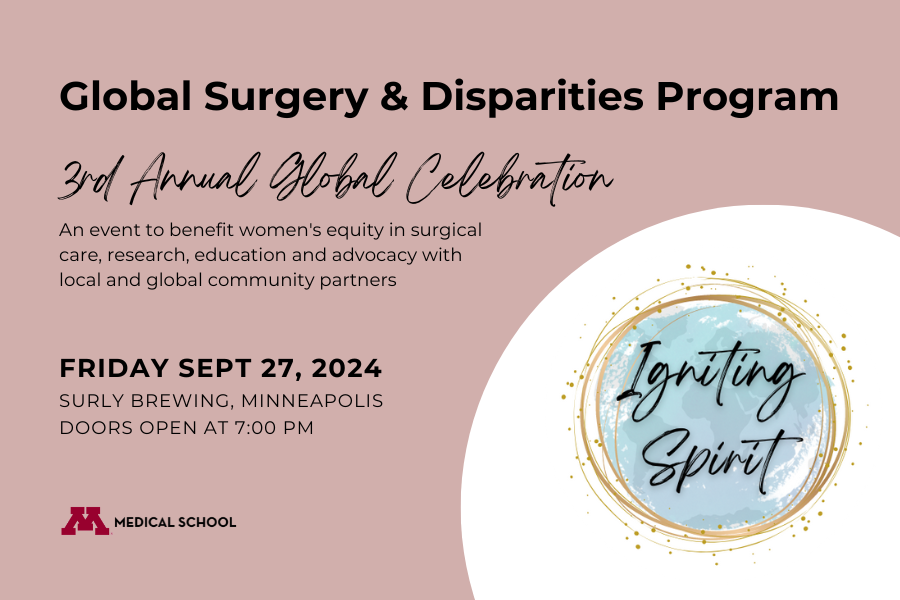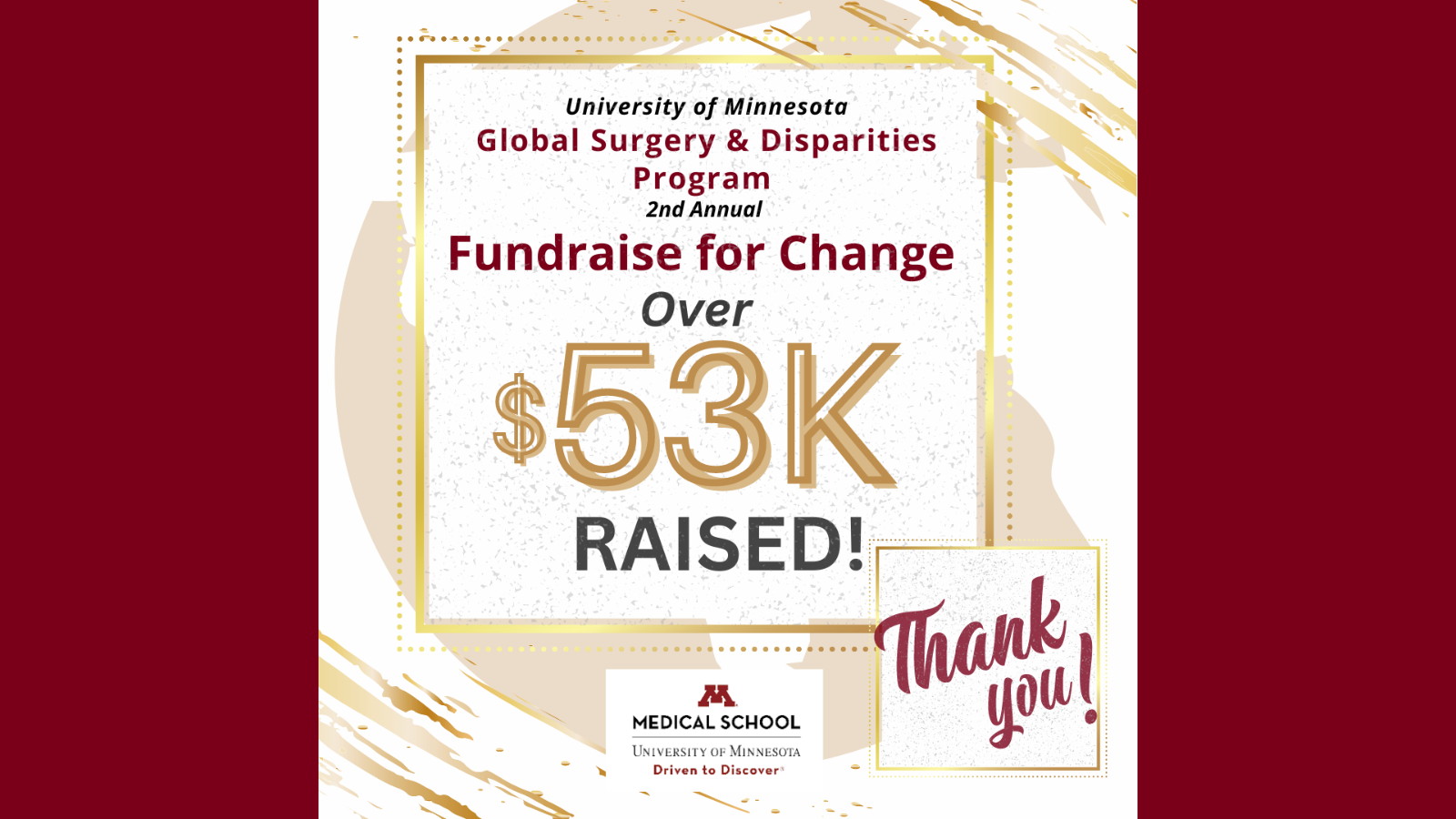Global Surgery & Disparities Program

OUR MISSION & VISION
The University of Minnesota Global Surgery & Disparities (UMGSD) Program works to understand and improve surgical and anesthesia care in underserved populations through partnerships with local communities - both domestically and internationally. Together we can ensure safe and equitable surgical and anesthesia care.

Our Strategies
CAPACITY BUILDING - Empower and strengthen healthcare systems in low-resource settings through the mutual exchange of knowledge and skill.
CLINICAL CARE - Reduce the global burden of surgical disease in low resource settings by supporting patient care and facilitating access to medical resources.
TRAINING IN GLOBAL HEALTH - Develop leaders in global surgery who advance health equity and are committed to sustainable, interprofessional partnerships.
RESEARCH - Foster multidisciplinary collaborations on academic research initiatives to address global surgery challenges, identify and implement solutions to improve health outcomes, and inform health policy through evidence-based advocacy.
ADVOCACY - Promote global health equity and social justice, including universal access to safe and affordable surgical and anesthesia care, at a small and large scale, to build awareness, engage stakeholders, and propel change.
VIDEO
The Global Surgery & Disparities Program offers opportunities for surgical trainees to incorporate global surgery into residency. The Global Surgery & Health Disparities Resident Education Fund exists to support these transformative experiences. In this video, current and past UMN surgery residents talk about how global surgical work has impacted them during and after training.
